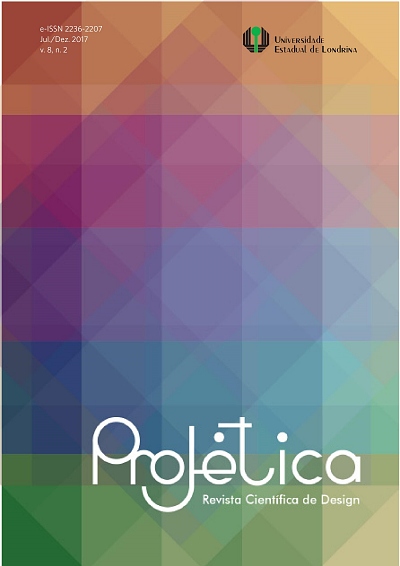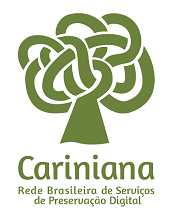Creativity stimulation culture as means for innovative processes
DOI:
https://doi.org/10.5433/2236-2207.2017v8n2p51Keywords:
Creativity, Innovation, Organizational cultureAbstract
Creativity is a human trait and a key factor to organizational competitiveness, especially in the face of constant changes in the business environment. It is necessary for corporations to create environments that encourage creativity so that ideas can be transformed into innovation. However, there are many barriers to the creative process – the organizational culture, for example. This study main objective is to verify the characteristics of creativity stimulation as an innovative process tool for products development in companies. This research is qualitative, exploratory as per the objectives, and descriptive – with two case reports. Results indicate a link between organizational culture of creativity stimulation and the development of innovative products, processes or services. It was found that one of the major challenges faced by corporations is finding ways to eliminate barriers in order to promote the expression of creativity among its coworkers.References
ALENCAR, Eunice Lima Soriano. Promovendo um ambiente favorável à criatividade nas organizações. Revista de Administração de Empresas, São Paulo, v. 38, n. 2, p. 18-25, 1998.
AMABILE, Terasa A. Creativity in context. Boulder, CO: Westview Press, 1996.
AMABILE, Teresa A.; GRYSKIEWICZ, Nur D. The creative environment scales: work environment inventory. Creativity Research Journal, Cambridge, v. 2, p. 231-253, 1989.
BEDANI, Marcelo. O impacto dos valores organizacionais na percepção de estímulos e barreiras à criatividade no ambiente de trabalho. Revista Administração Mackenzie, São Paulo, v. 13, n. 3, p. 150-176, maio/jun. 2012.
CAULKINS, Kyle Wellington. Criatividade nas organizações. 2001. Trabalho de Conclusão de Curso (Programa Especial de Treinamento do Departamento de Engenharia de Produção e Sistemas) - Universidade Federal de Santa Catarina, Florianópolis, 2001.
COLOSSI, Luciano. Características de ambientes organizacionais orientados ao comportamento criativo. 2004. Dissertação (Mestrado em Psicologia) - Universidade Federal de Santa Catarina, Florianópolis, 2004.
COSTA, Maria Helena Gil. Porque a criatividade está na moda, ou porque antes de ser professor sou pessoa. Revista Sonhar, Braga, v. 8, n. 1, p. 125-141, set./dez. 2000.
DASKALAKI, M. Building ‘Bonds’ and ‘Bridges’: linking tie evolution and network identity in the creative industries. Organization Studies, Berlin, v. 31, n. 12, p. 1649-1666, 2010.
FLORIDA, R. A ascensão da classe criativa: e seu papel na transformação do trabalho, do lazer, da comunidade e do cotidiano. Porto Alegre: LPM, 2011.
LOCH, Clésar Luiz; AMORIM, Luciana Martins; SCHMIDT, Luciane Lehmkuhl. Criatividade, trabalho e empreendedorismo. In: ENCONTRO NACIONAL DE EMPREENDEDORISMO, 5., 2003, Florianópolis. Anais... Florianópolis: ÚNICA - Centro de Educação Superior, 2003. v. 1, p. 1-9.
PAROLIN, Sonia Regina Hierro; VASCONCELLOS, Eduardo; BORDIGNON, João Alberto. Barreiras e facilitadores à inovação: o caso Nutrimental S/A. Revista de Economia Mackenzie, São Paulo, v. 4, n. 4, p. 12-34, jan. 2006.
PEREIRA, Breno Augusto D.; MUSSI; Carlos Wolowski; KANBEEN; Alcina. A influência da criatividade para o sucesso estratégico organizacional. In: ENCONTRO ANUAL DA ASSOCIAÇÃO NACIONAL DOS PROGRAMAS DE PÓS-GRADUAÇÃO EM ADMINISTRAÇÃO, 23., 1999, Foz do Iguaçu. Anais... Foz do Iguaçu, 1999. v. 1, p. 1-10.
SCHEIN, E. Corporate culture. In: VOGELSANG, John et al. Handbook for strategic HR: best practices in organizational development from the OD network. New York: American Management Association, 2013. p. 253-256.
SILVA, Giorgio Gilwan da. Cultura de estímulo à criatividade como instrumentos de processos inovadores. Projética, Londrina, v.7, n.1, p. 9-25, Jan/Jun. 2016.
VOLPATO, Maricilia; CIMBALISTA, Silmara. O processo de motivação como incentivo à inovação nas organizações. Revista da FAE, Curitiba, v. 5, n. 3, p. 75-86, 2002.
WILSON, N. Social creativity: re-qualifying the creative economy. International Journal of Cultural Policy, Coventry, v. 16, n. 3, p. 367-381, 2010.
YUAN, Feirong; WOODMAN, Richard W. Innovative behavior in the workplace: the role of performance and image outcome expectations. Academy of Management Journal, Champaign, v. 53, n. 2, p. 323-342, 2010.
Downloads
Published
How to Cite
Issue
Section
License
Projética está licenciada sob a Creative Commons Attribution CC-BY 4.0 International. Os autores detém os direitos autorais e concedem à revista o direito de exclusividade de primeira publicação.
Os autores dos trabalhos aprovados autorizam Projética a, após a publicação, ceder seu conteúdo para reprodução em indexadores de conteúdo, bibliotecas virtuais e similares.
Os autores assumem que os textos submetidos à publicação são de sua criação original, responsabilizando-se inteiramente por seu conteúdo em caso de eventual impugnação por parte de terceiros. As opiniões emitidas pelos autores dos artigos são de sua exclusiva responsabilidade.
A revista se reserva o direito de efetuar, nos originais, alterações de ordem normativa, ortográfica e gramatical, com vistas a manter o padrão culto da língua e a credibilidade do veículo. Respeitará, no entanto, o estilo de escrever dos autores. Alterações, correções ou sugestões de ordem conceitual serão encaminhadas aos autores, quando necessário. Nesses casos, os artigos, depois de adequados, deverão ser submetidos a nova apreciação. As provas finais não serão encaminhadas aos autores.










